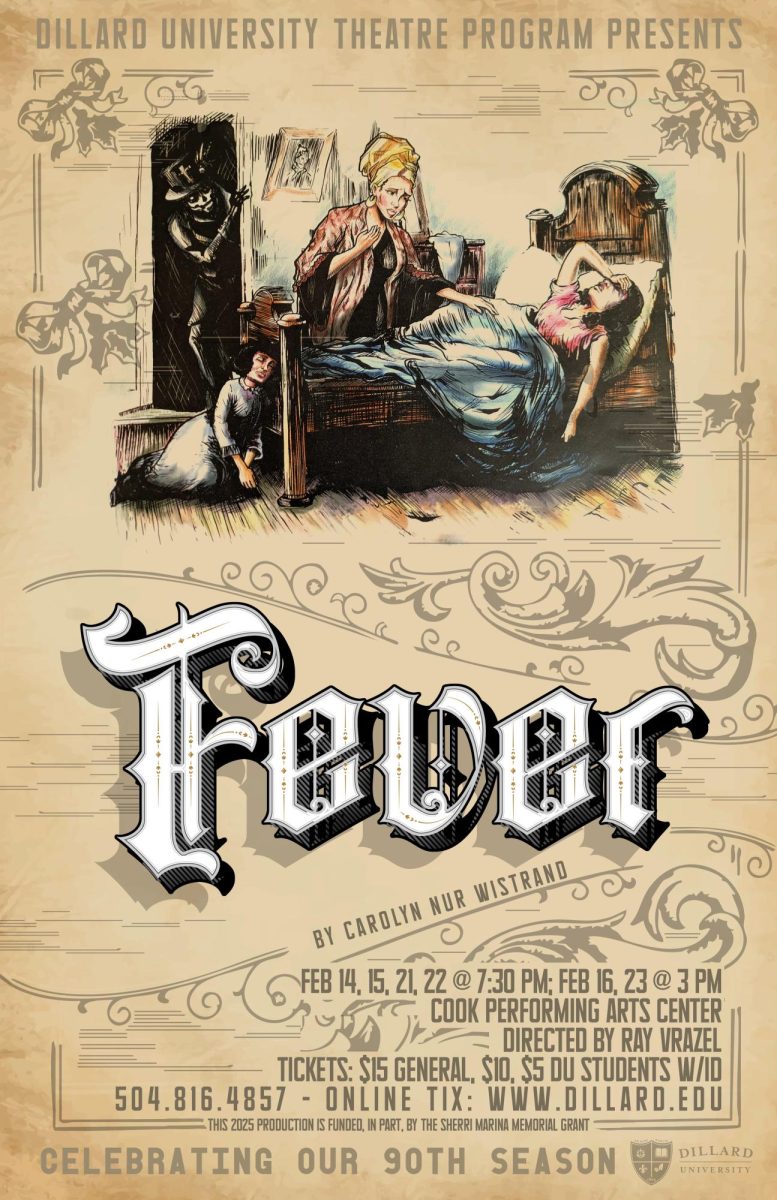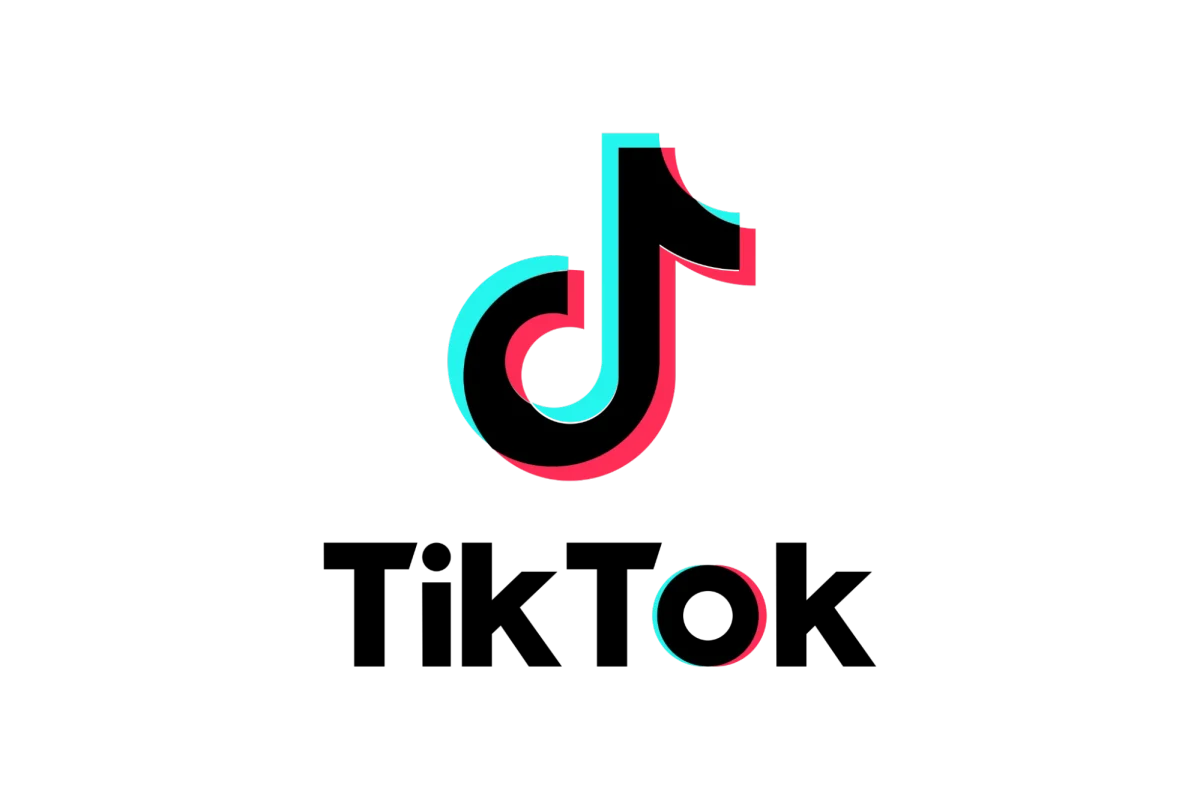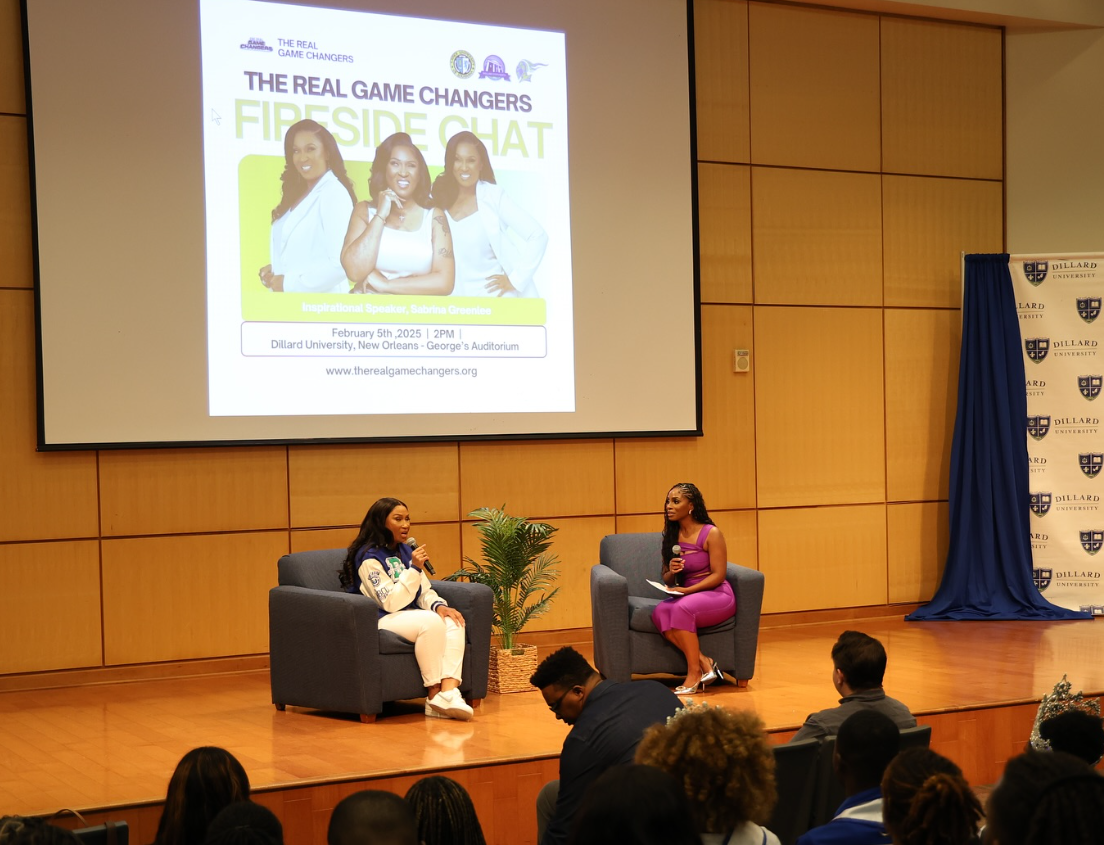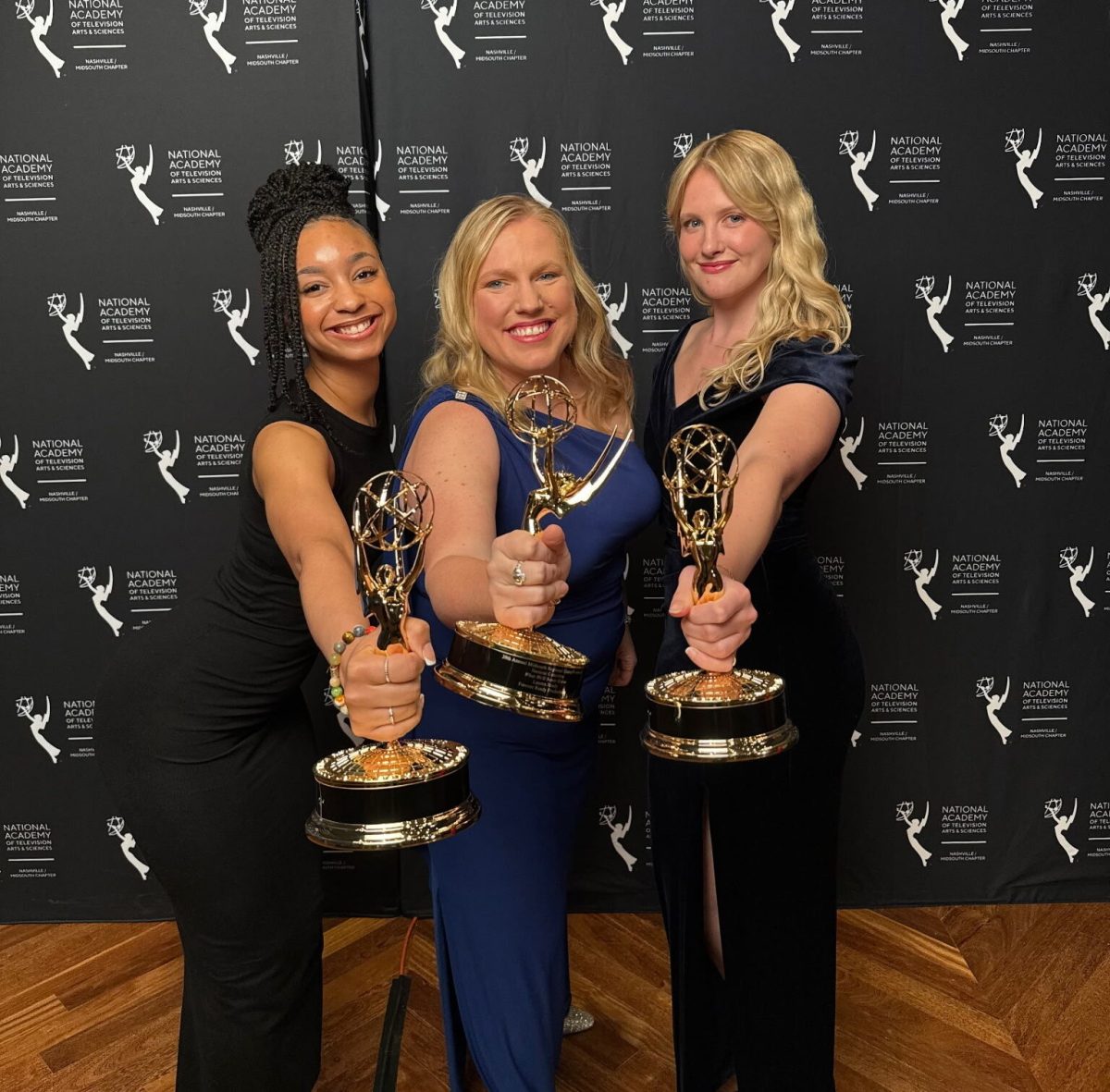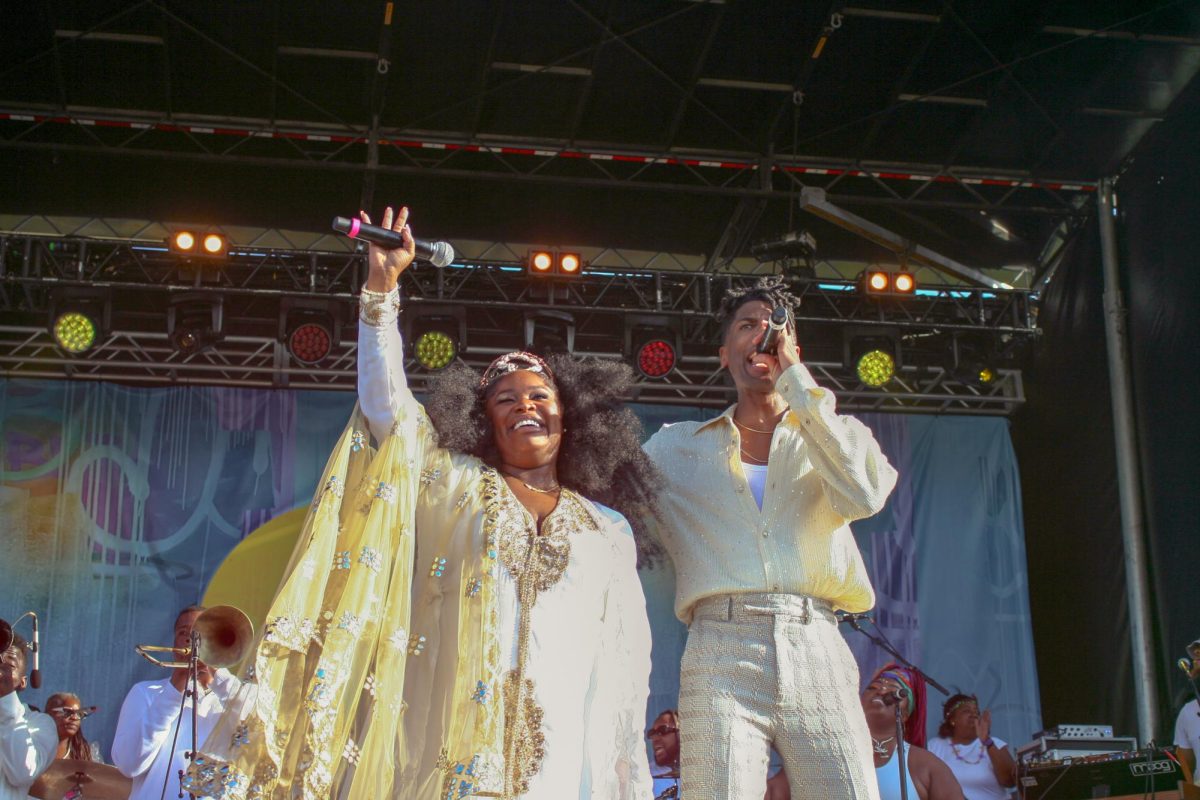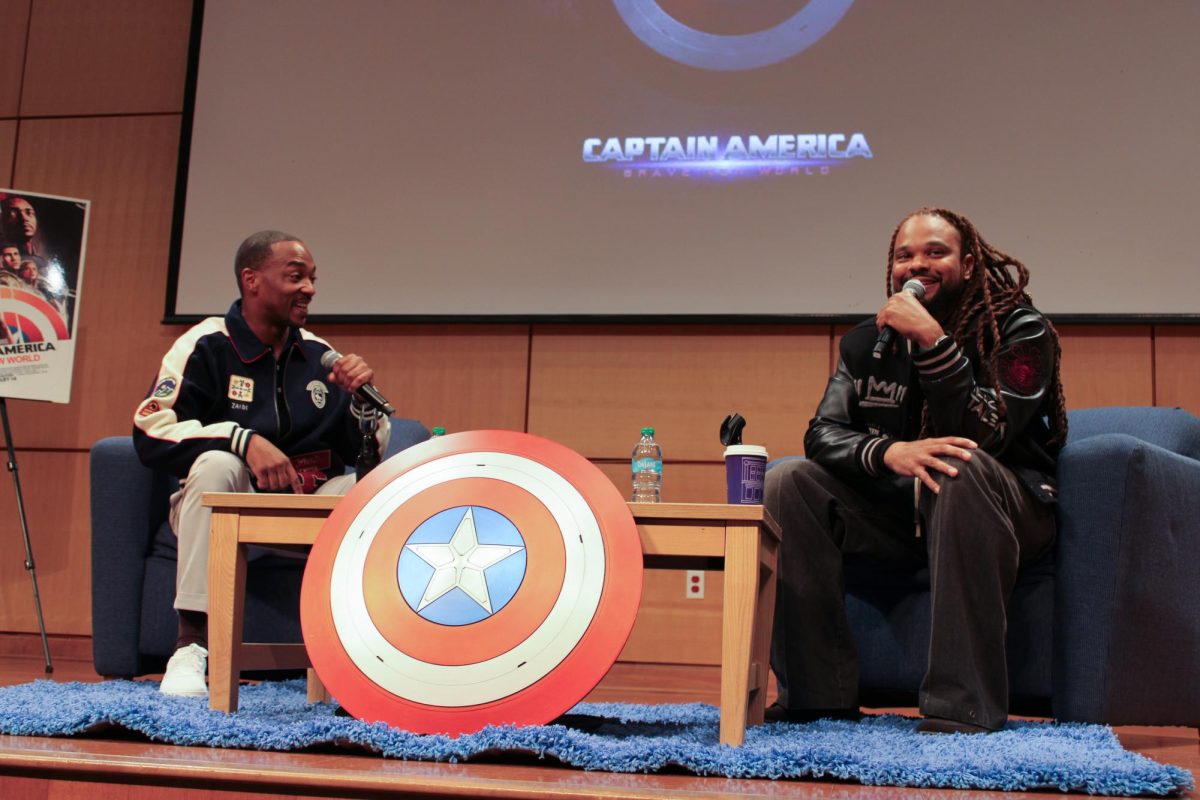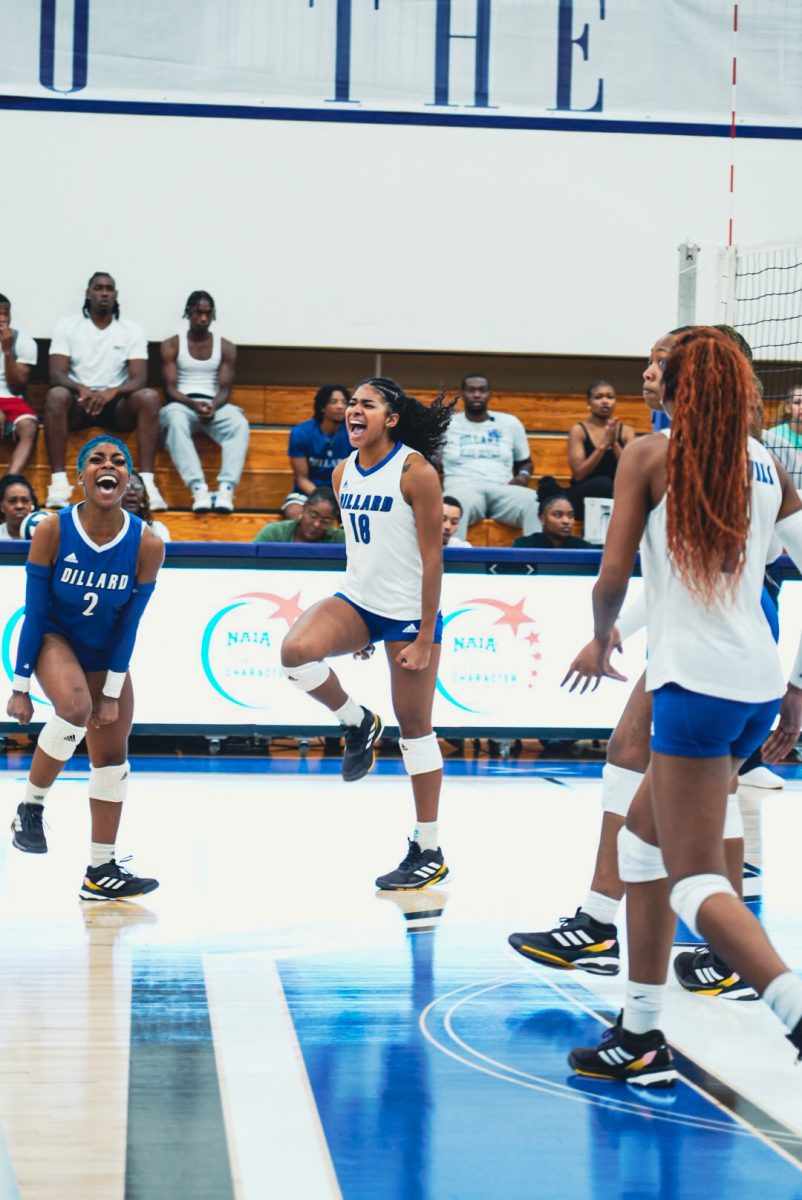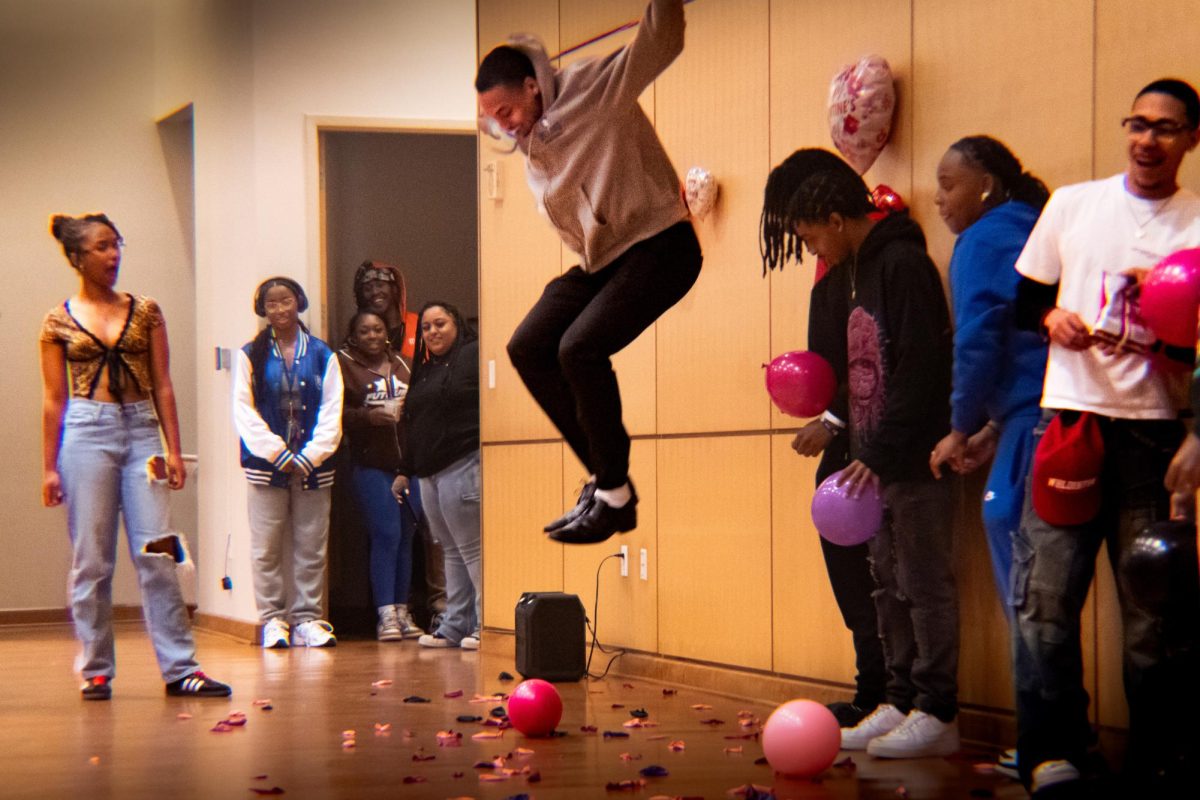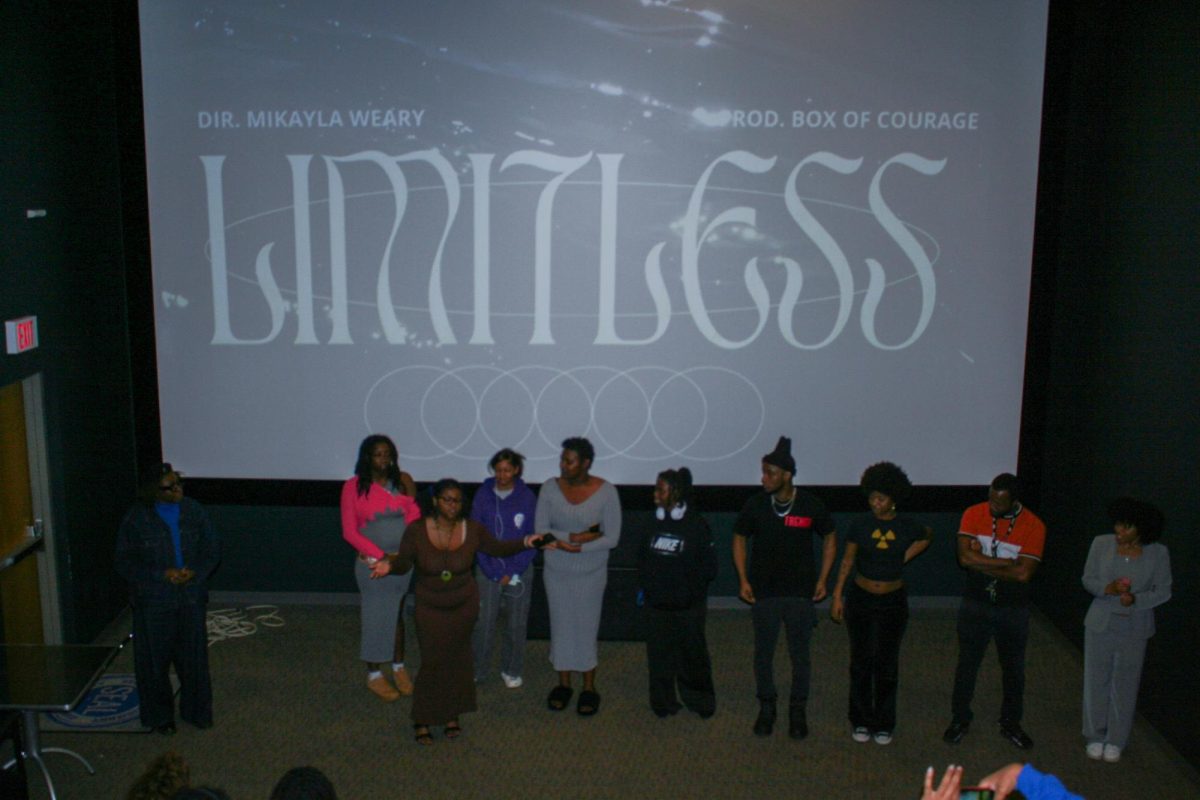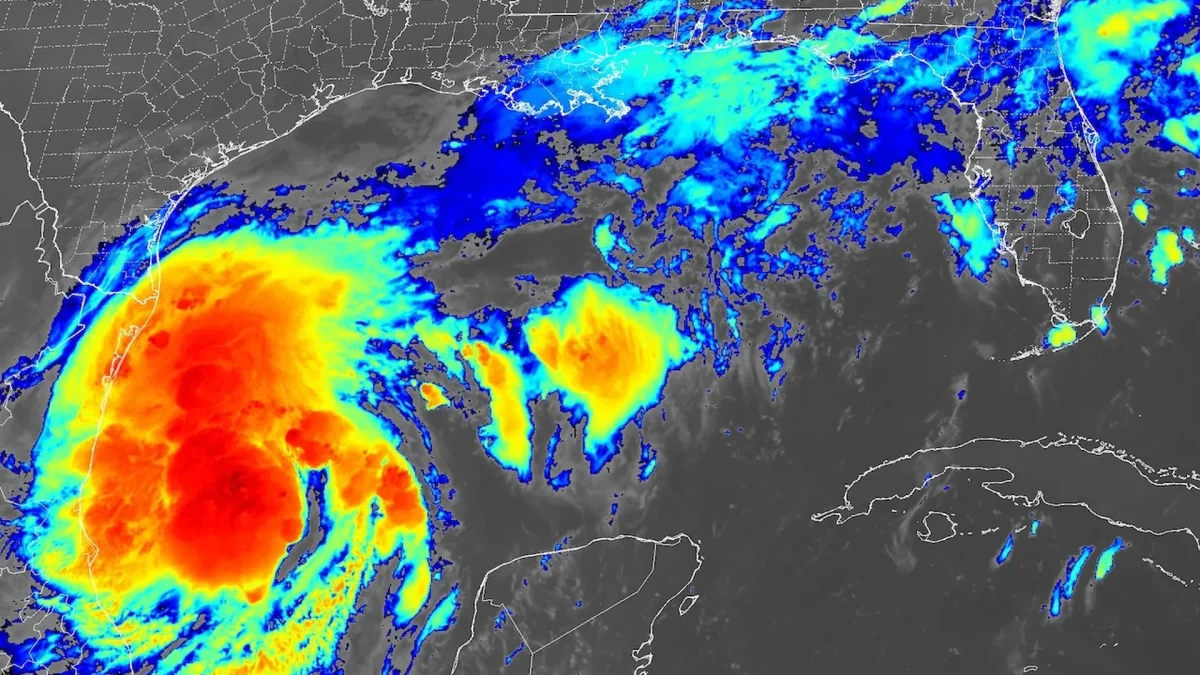The singing duo Prussian Blue are described as one of the most controversial up and coming bands on the music scene today. Their name is a nod to their German heritage and bright blue eyes. The 14- year -old girls, Lynx and Lamb sing about their white pride. Their blue eyes, blonde hair, and wide smiles present them as sweet young girls; a look totally different from the messages preached in their songs. The songs the girls sing reflect their white nationalist beliefs and their website describes them as: “Artists who constantly push the envelope while most artist struggle to remain in the self imposed limits of politically correct thought”. The girls have been nurtured with racist’s ideas by their mother and have reproduced their attitudes in lyrical form for all to hear in their music.
Music, Musicians & The Industry
The music industry has become a growing phenomenon since the very beginning of its existence. It is a business that serves the purpose of promoting, creating, performing and preserving music, but although the business has many positive aspects, it has many negative ones as well. Artists and musicians may produce various songs that may consist of negative content, and as a result people may possibly believe the music industry has gone too far, however, considering the First Amendment rights, one may ask, “has the industry crossed the line with the contents of the songs?”
American society is one that focuses heavily on exercising the First Amendment rights of its citizens. The American governments as well as the states have been permitted to restrict obscene or pornographic speech. The exact definition of obscenity and pornography, however, have changed and been challenged over time so many constantly push the envelope to test their boundaries specifically regarding music.
Musicians, singers, songwriters, rappers, and entertainers have been constantly ridiculed and questioned for the content of their lyrics so much so that parental advisory labels have been requested to specify whether the content of the music is sex, violence or strong language.
Prussian Blue’s lyrics may not contain cursing, or have an up-tempo beat but the content can still be considered offensive. “Rudolph Hess, man of peace. He wouldn’t give up and he wouldn’t cease, to give his loyalty to our cause. Remember him and give a pause,” are some of the lyrics of a Prussian Blue song. Upon first reading the song, the lyrics don’t directly sound offensive but if one was familiar with history or the history of the Holocaust they would know Rudolph Hess was one of Hitler’s henchmen. He was in fact not a man of peace, but a very violent killer who aided in the murder of millions of Jewish people. Even when listening to lyrics, the song doesn’t sound offensive because these sweet little voices or you see these cute angelic girls are singing to this soft tune, despite the fact that they don’t look or sound offensive, they can be too many. “Me so horny, me love you long time” is the chorus of a 2 Live Crew song from the 80’s. They were actually banned from the airwaves because of the content of their lyrics, but Prussian Blue has not been regulated thus far even though many of their songs are a nod to racism and talk about world full of blond haired, blue eyed white people. Now how many Black, Chinese, Arab, Vietnamese and various other races do you know have blond hair and blue eyes?
2 Live Crew….to obscene for you?
Since the 1950’s America has been banning controversial songs, and lyrics have even been voluntarily labeled to ensure people aren’t offended. 2 Live Crew, a popular rap group of the late 80’s and early 90’s were in constant controversy over their album As nasty as they wanna’ be. The song lyrics caused so much controversy, that six states declared their album obscene and banned it. The members of the group were even arrested for performing some of the songs on the album; however, they were later acquitted. As a result of all the mishap the album sold over 2 million copies. 2 Live Crew’s album was accused of containing obscene lyrics, so much so that the AFA (American Family Association) felt as if a parental advisory sticker would not suffice on warning the public of how obscene the content was.
One has to question, was the banning a violation of their first amendment rights? Were they not expressing how they felt? Or are our first amendment rights subject to debate at any given time? Ken Paulson, executive director of the first amendment center said, “The first amendment allows us to say what’s on our minds. That doesn’t just disappear just because the message has a backbeat.” So in fact he answers a question often posed…their rights should not disappear because they are musicians.
The Regulators…
The music industry has changed immensely over the years. There have been several instances of artists pushing the envelope and testing their boundaries in the music industry. The FCC (Federal communications commission) was founded in 1934 to regulate interstate and international communications by radio, television, wire, satellite and cable. The FCC’s jurisdiction covers the 50 states and the District of Columbia. The singing duo does push the envelope; however, how much is the concern. According to the FCC website, it is a violation of federal law to air obscene programming at any time. It is also a violation of federal law to air indecent programming or profane language during certain hours. The FCC may revoke a radio station’s license, impose a monetary forfeiture, or issue a warning if a station airs obscene, indecent, or profane material. To determine if something is obscene the content must pass a three part test. A person must find that the material, as a whole, appeals to the prurient interest; the material must depict or describe, in a patently offensive way, sexual conduct specifically defined by applicable law; and the material, taken as a whole, must lack serious literary, artistic, political, or scientific value. Many people might have mumbled complaints about the girls songs, however not enough to where the FCC has stepped in, and considering their songs are not broadcasted on the public radio waves, they don’t face severe problems.
Dana Pinkston, a junior at Dillard said that music can have an affect on people’s mindsets and affect children. The Miami, Fla. native said “Music should be censored because it aids in the protection of minors and what they listen to. Any type of media should not have some type of censorship however people still have to have the freedom of expression so therefore we can’t fault anyone for being creative in their music. What the FCC has done thus far is the only thing that can be done. Though statistics says music has an effect on behavior we can’t monitor everything.”
Politically correct censoring??
Today musicians are given the personal choice to censor their music while the government has the right to censor if necessary. Lynx and Lamb definitely have tested their boundaries and have made the personal choice to include lyrics that may be considered offensive by some. They definitely may not be considered to be the most “pc”.
According to wikipedia.org The term politically correct or pc is a term used to describe language or behavior which is claimed to be calculated to provide a minimum of offense, particularly to racial, cultural, or other identity groups. In recent months numerous articles have been published in magazines, newspapers and online about the singing duo. Message boards, groups on the popular college web-site “facebook.com,” and blog entries have all been posted in response to the girl’s songs. Some college students say they are not particularly pleased that these young girls want to preach so much hate.
Tiombe Asadullah, sophomore chemistry major said she feels sorry for the girls. “I think their music is the epitome of ignorance being passed down, it’s the parents who should be criticized and held responsible, not the girls. Look at the companies producing and supporting these girls as well, aren’t they celebrating hate? We can’t do anything about their lyrics; we don’t censor rappers when people feel as if their lyrics are offensive, so we can’t censor them. Though the girls are ignorant, we still have to take into consideration they are practicing their first amendment rights,” the Los Angeles, Calif. native said.
Are there exceptions to every rule?
The first amendment states “congress shall make no law respecting an establishment of religion, or prohibiting the free exercise thereof; or abridging the freedom of speech, or of the press; or the right of the people peaceably to assemble, and to petition the Government for a redress of grievances,” however it does not say that certain peoples rights are up for grabs. The amendment clearly states that congress cannot abridge or condense people’s rights, so why is that lyrics are subject to discretion. Though people have the right not to be offended, people also have the right to express themselves. Censorship is legal, songs with strong language, racist’s views, or harmful references will have labels but it just means anyone can purchase the CD but they should be aware of what the song contains.
Of course Lynx and Lamb of Prussian Blue have the right to express how they feel, the First Amendment reinforces it and despite how offensive they might be no one has regulated them thus far. Rappers and rock artists are constantly ridiculed for the content of their songs, extreme measures are not always taken like in the 2 Live Crew case, but they are still scorned. Not only are they given flak by the publics but by government officials as well. South African musician Johnny Clegg said, “Censorship is based on fear. Music is a free expression of the ideas, traditions and emotions of individuals and of peoples. Yet these expressions may conflict with those people in power. The ideas themselves may simply be unpopular or outside the current thinking or practices of a regime or special interest group. For there are those who will stop at nothing to stifle them.”
A sociological perspective
There have been no studies to show that music, television or any other media directly results in violent acts committed or harmful behavior however it does have an influence, nevertheless there is no determination of how much. Studies show that many media forms play a role, but are not the sole factor in violent sex crimes, suicides, homicides and everyday violent acts which juveniles are engaged.
Russell Henderson a lecturer in the social sciences department said he is not convinced on the theory presented by advocators for media ethics. “We’re in an age when there is too much censorship, so much so that people are beginning to self-censor. How do the racists twins get to get on the air but the sexist lyrics from the rap stars get to get on the air and are bleeped? Why should I be watching shows or listening to the radio and they get bleeped, I find that offensive. These prime time television shows self-censor, they don’t even put the words in there because they don’t want to be bleeped. Censorship makes people say things differently and make people think differently. If you’re trying to portray real life in music or on television it’s unrealistic for there to be no curse words or offensiveness,” Henderson said. In regards to offending people Henderson said, “I don’t think its okay to write songs to offend people, I think it’s really awful but I don’t think we can stop it. I’m a lobbyist; one of the things I lobbied against is record labeling. It all depends on culture and what people listen to. Taste change, norms change, battles have been fought for issues concerning personal censoring for years. For example, personally I don’t approve of pornography, but I’m opposed to any limits on anybody else buying pornography.”
What the artists/producers say?
Rapper Cory Campbell, of the Bay Area’s music label Famillite Entertainment, said just because he disagrees with lyrics that may be controversial does not mean they have to be censored. “Music is an outlet, a way to express how a person is feeling. Anybody can say anything they wish to, just because I personally don’t like someone saying white power doesn’t mean that I have the right to say its wrong, its how they feel. You can’t question art, you can’t block creativity. Music is art, and art is a form of expression,” Campbell said. Though Campbell doesn’t think the girls should be censored he said he censors himself as an artists and is careful not to offend others. “There are some boundaries I set because I realize my music affects diverse crowds; I make sure in my music I incorporate explanations for what I rap about. I clarify why this happened, what brought this out or where it came from. I tell a story in my music so my audiences get the whole picture, I don’t just express pure emotion.”
Justin Davis, a music producer from Berkeley, Calif. said he doesn’t feel like artists should be censored. “I think music should be censored to a certain degree, you can not blatantly offend people, at the same time an artists can not totally say I will not express how I feel. It’s a struggle of what’s going too far and what’s not. When I work with my artists I don’t make them set boundaries, their music is what they want to express. My job as a producer is to magnify what they feel. It’s not my job to censor; it’s a job that should be created.”
The Dillard University junior said he doesn’t agree with Prussian Blue’s lyrics but it is their right. “They found a niche. Their tactic is to sing about racism which in result causes other people to talk about them, it’s great publicity. The content of their music reflects their age and immaturity, it is quite ridiculous, but their exercising their First Amendment rights, so they can say what they want.”
Researchers, students, producers, artists, even America can argue to the death about freedom of speech and how it can be determined when it comes to music but there are no exact limitations to determine how much music can be censored. Lobbying groups have succeeded in keeping popular music off the concert stage, out of the media and in retail; and in fact they often run the risk of limiting artists the First Amendment rights. As musical artist there is an obligation of concern for their publics but how much concern is a decision the artists itself must make. Censoring is the job of the FCC; however before they step in, an artist must have personal discretion to decide what is or is not appropriate, only when there is a complete and “total disregard” for the public the FCC intervenes. Maybe if a little more time was taken to think about what’s being promoted and distributed over the airwaves there would be less controversy. Until more time is taken, it is an artist decision to decide how much they will test their boundaries, how far the envelope will be pushed and what the content of that envelope will contain.



